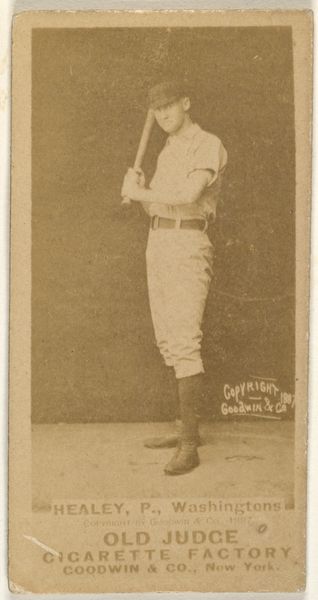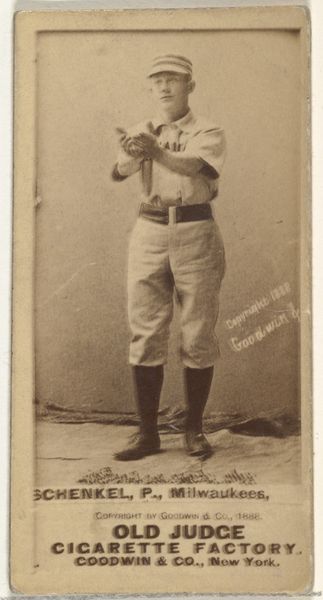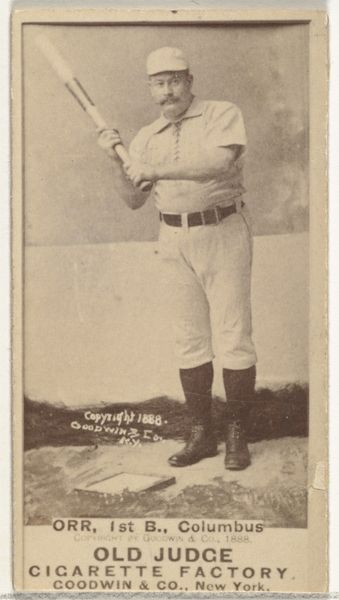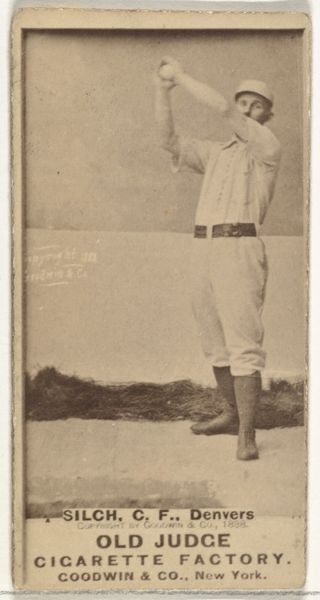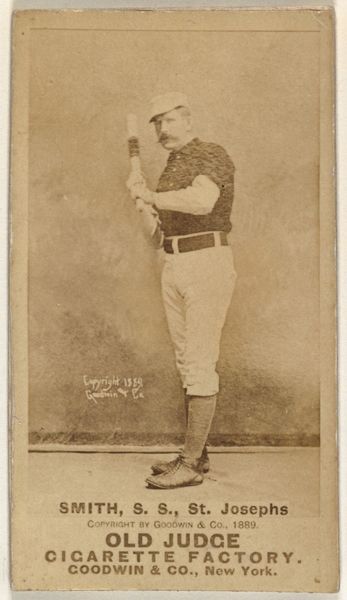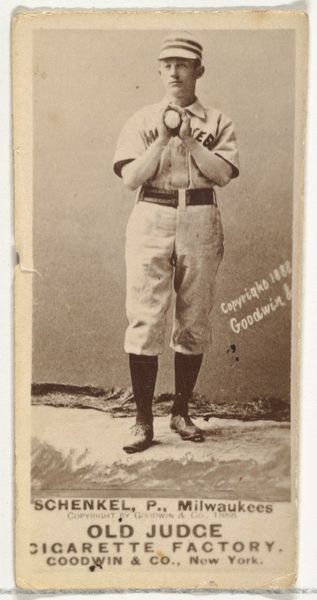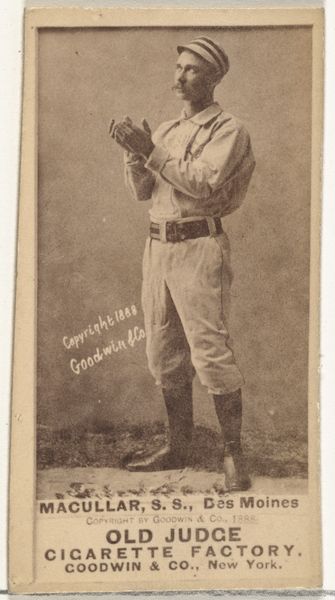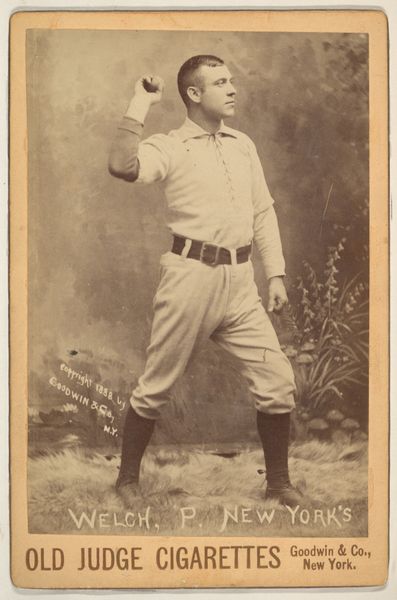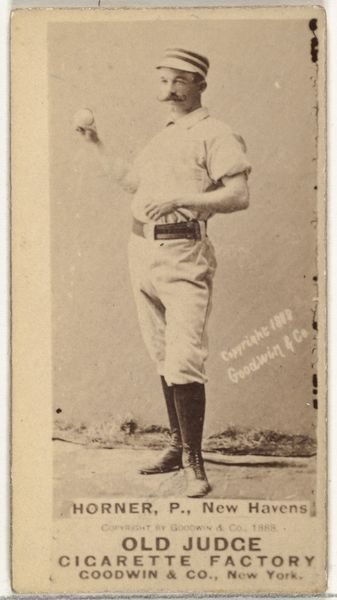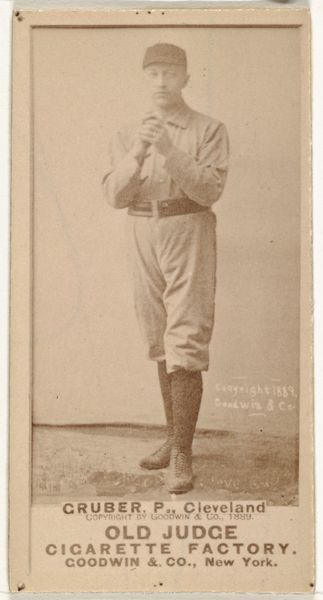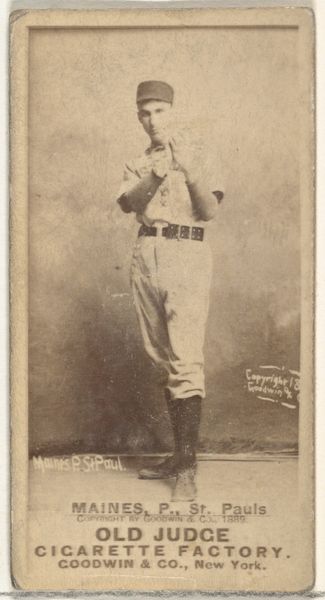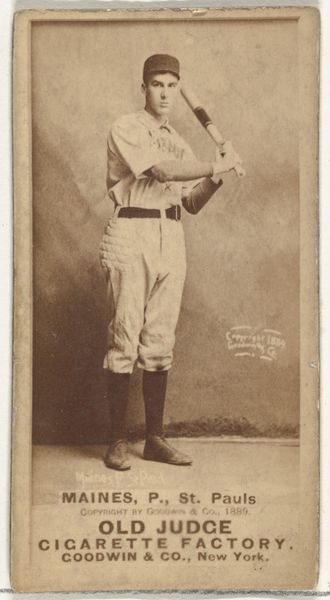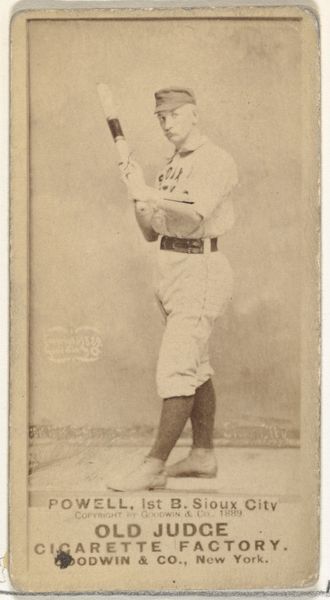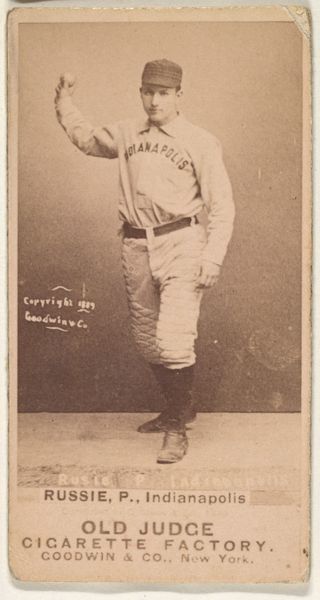
Dave Orr, 1st Base, Columbus, from the series Old Judge Cigarettes 1888
0:00
0:00
print, photography, albumen-print
#
portrait
#
aged paper
# print
#
baseball
#
photography
#
historical photography
#
19th century
#
men
#
albumen-print
Dimensions: sheet: 6 1/2 x 4 3/8 in. (16.5 x 11.1 cm)
Copyright: Public Domain
Editor: This is "Dave Orr, 1st Base, Columbus, from the series Old Judge Cigarettes," a baseball portrait from 1888, made by Goodwin & Company, using albumen print. The sepia tones give it a strong sense of age. He seems so serious holding that bat! What jumps out at you when you see this? Curator: What resonates with me are the layers of meaning imbued within this image as a cultural artifact. The Old Judge Cigarettes series served as a potent form of early advertising, associating virility and athleticism with tobacco consumption, capturing a specific cultural memory. But beyond the overt commercialism, consider the albumen print itself. Its delicate nature, prone to fading, mirrors the ephemeral nature of fame. The figure of Dave Orr, a celebrated baseball player, is presented almost iconographically. The mustache, the stance, all contribute to an ideal of masculinity. How do these visual symbols resonate with contemporary ideas about sports figures and celebrity endorsements, do you think? Editor: I never thought about it that way. He looks stiff, maybe uncomfortable posing for the camera? I suppose now athletes have so much more agency over their image. Curator: Exactly. Agency, self-representation... what's captured in this image isn't just a baseball player; it is also a cultural moment, carefully constructed. It begs questions: what was excluded? Who controlled the narrative? Think about the demographic primarily targeted by Old Judge Cigarettes. How might this affect what aspects are included and excluded from this image of masculinity? Editor: That's a great point. It's fascinating how much is communicated in a seemingly straightforward portrait. I appreciate your perspective on the cultural context. Curator: And I'm intrigued by your focus on the emotional expression, how it makes us reflect on more immediate responses beyond historical study. Thanks!
Comments
No comments
Be the first to comment and join the conversation on the ultimate creative platform.
